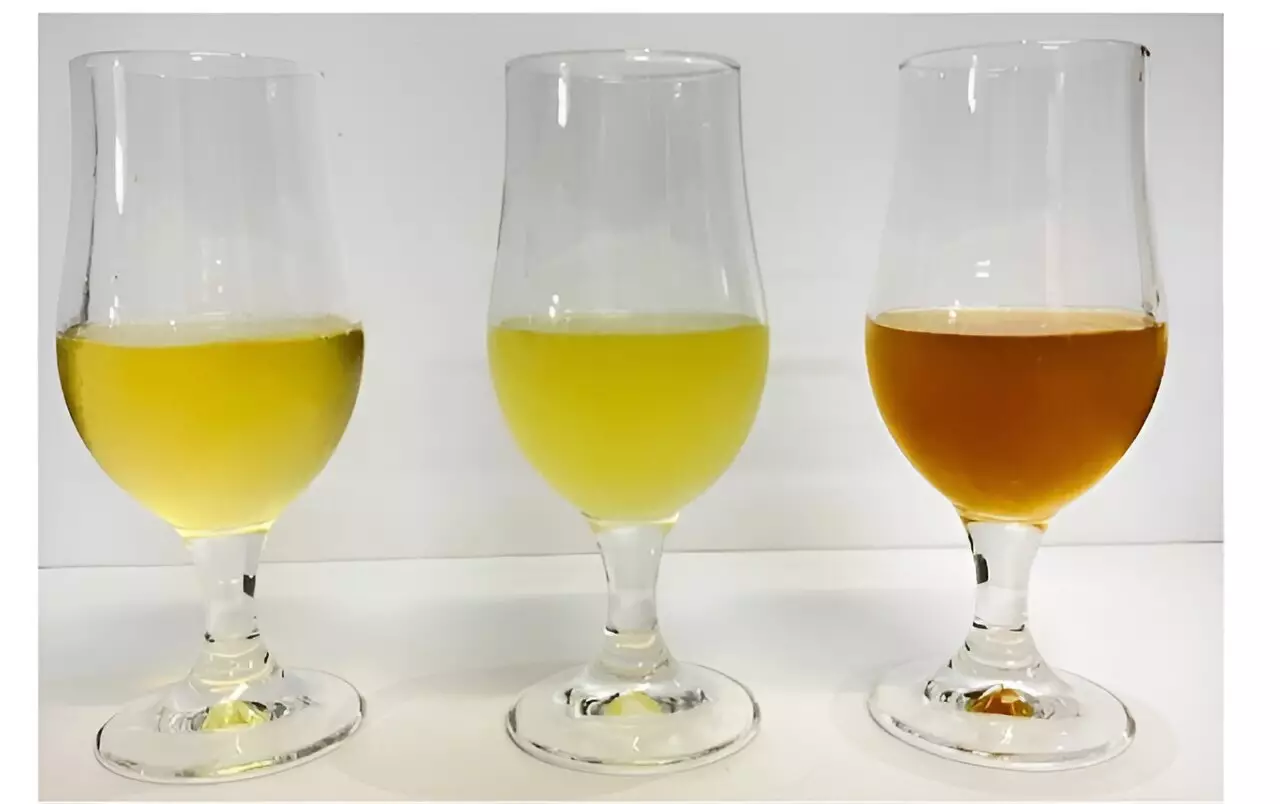Kombucha has gained significant popularity as a trendy beverage that presents a unique fusion of tanginess and effervescence, primarily derived from the fermentation of sweetened tea. Traditionally, this process employs a symbiotic culture of bacteria and yeast, commonly referred to as a SCOBY. As consumer interests expand, brewers are experimenting with a diverse range of plant-based liquids beyond just tea. This push for innovation is aimed at uncovering new nutritional benefits and flavor profiles that might resonate with health-conscious consumers.
A recent investigation conducted by researchers from ACS Agricultural Science & Technology highlighted the potential of creating kombucha-like beverages from alternative sources, specifically apple and passion fruit juices. In this study, researchers focused on the biochemical composition and flavor characteristics of these new brews, structured to assess their viability as alternatives to traditional kombucha. The findings indicated that apple juice obtained remarkable levels of bioactive flavonoids, which were not only higher than those found in both kombucha and the passion fruit beverage but also received high marks from taste testers.
The allure of kombucha lies in its fermentation process, where sugars from the tea are converted into organic acids, alcohol, and various bioactive compounds through microbial activity. These components are believed to confer health benefits, including antioxidant and anti-inflammatory properties. The inclusion of other fruits in this fermentation process essentially diversifies the nutrient profile of the resulting beverages. In this study, apple and passion fruit juices were utilized as bases for fermentation, observing their transformative potential over a controlled period of 10 days at room temperature.
The researchers analyzed the fermented products for their bioactive compounds, particularly flavonoids, phenolic compounds, and anthocyanins, which contribute to antioxidant properties. The apple juice, leading with the highest flavonoid concentration, emerged as more favorable compared to its competitors. While the kombucha demonstrated comparable phenolic levels, the passion fruit fell short in both antioxidant content and overall taste appeal. When taste testers were asked to evaluate the color, aroma, and flavor, the apple beverage stood out with a warm amber hue and sweeter aroma, contrasting sharply with the bitterness of the passion fruit.
The enthusiastic response toward apple juice as a fermented alternative signals a promising direction within the beverage industry, suggesting that health-conscious consumers may be drawn to sweeter flavor profiles complemented by robust antioxidant benefits. Furthermore, this research serves as a catalyst for deeper exploration into the realms of unconventional ingredients for fermenting beverages. Not only can this inspire additional research into the health advantages of various fruits, but it also appeals to burgeoning consumer trends toward wellness and sustainability. As kombucha’s evolution continues, we may soon see a plethora of innovative, health-focused drinks emerging from the fermentation process, offering refreshing alternatives in our daily diets.


Leave a Reply